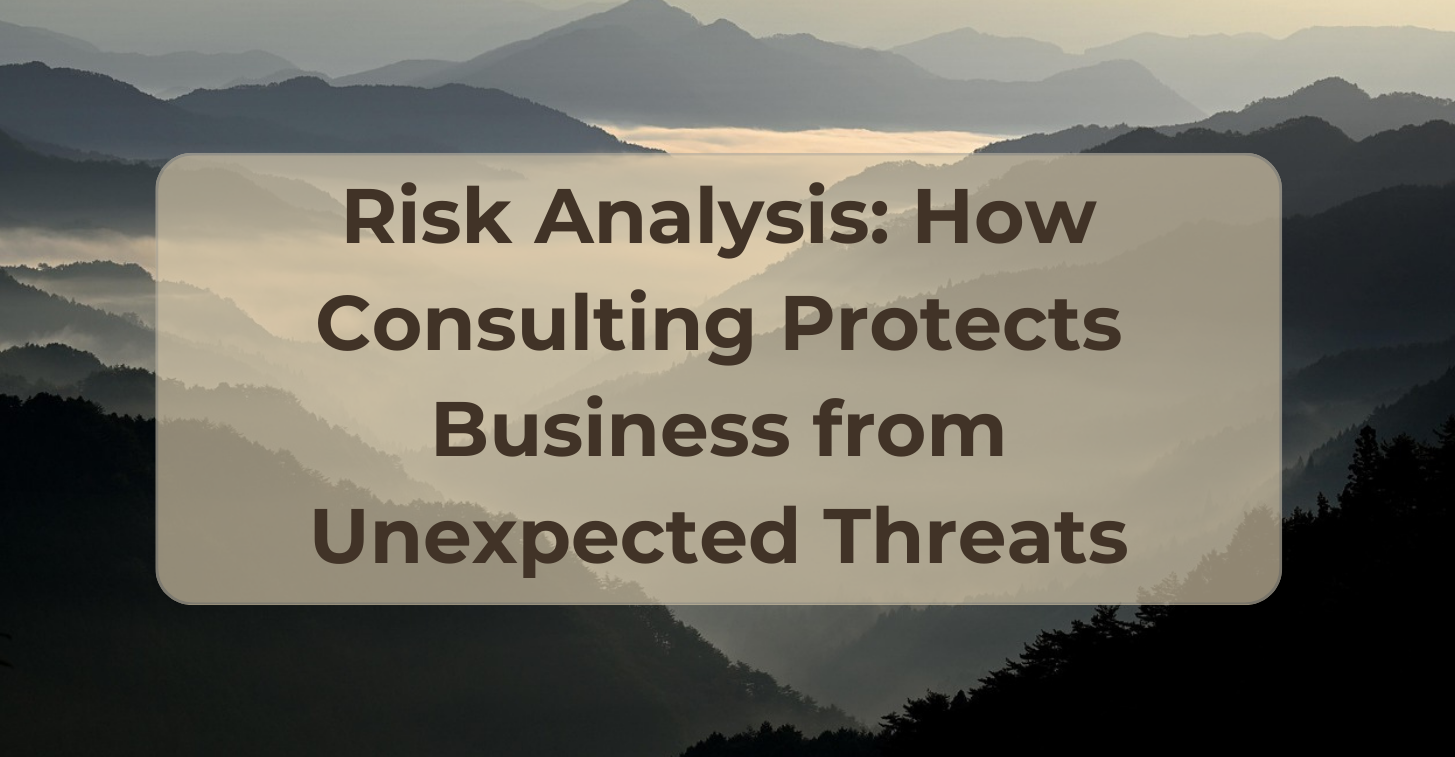
In the present fluctuating business environment, companies face numerous unpredictable risks. These risks range from economic instability to technological disruptions. The business landscape is fraught with challenges that can undermine a company’s operations, reputation, and financial stability. Risk analysis has become a vital tool in helping businesses identify, assess, and mitigate these potential threats. Consulting firms specialising in corporate risk management play an indispensable role in navigating these challenges. By leveraging expert knowledge and data-driven insights, consultants help businesses ensure long-term sustainability and profitability.
What is Risk Analysis?
Risk analysis involves identifying potential risks that could negatively impact an organisation. It also evaluates the likelihood and impact of these risks. The process considers both external and internal threats to a business. External risks can include market fluctuations, natural disasters, and geopolitical instability. Internal risks might involve cybersecurity breaches, operational inefficiencies, or employee misconduct. Understanding these risks allows businesses to develop strategies for mitigation or transfer, reducing exposure and increasing resilience. The Process of Risk Analysis
Risk analysis is typically conducted in stages. The first stage involves identifying potential risks. After identification, businesses move on to assess the risks. The final step is to formulate risk management strategies. Each stage of the process is crucial for accurate analysis. Without proper identification, a business might overlook risks that have significant consequences. Inaccurate assessment could lead to underestimating the severity of some risks. Effective strategies can help mitigate these risks and minimise their impact on the company. The Role of Consulting in Risk Management
Consulting firms specialising in risk management provide expert guidance. These consultants bring a wealth of experience and industry-specific knowledge. They use advanced tools to help businesses make informed decisions. With consultants’ expertise, businesses can understand and manage their exposure to various risks. In an increasingly complex global environment, consulting can be the difference between success and failure. Consulting firms also help companies stay ahead of emerging risks by leveraging their networks. Identifying Emerging Risks
Risk consultants are skilled at identifying emerging risks. These risks may not be immediately apparent to businesses. Consultants use their industry insights to predict potential threats. In 2023-2024, the World Economic Forum identified risks like cyberattacks, climate change, and supply chain disruptions. These risks were highlighted as critical threats to business continuity. Cyberattacks, in particular, were expected to rise due to advancements in technology. Consultants can help businesses anticipate these risks and prepare strategies to address them. Data-Driven Risk Assessment
Consultants use data analytics tools to assess risks accurately. These tools enable precise risk evaluations using historical data and market trends. Data-driven insights provide businesses with a clearer picture of potential risks. For instance, in 2023, the average cost of a data breach reached $4.45 million. This increase was partly due to vulnerabilities caused by remote work. Consultants use such data to prioritise risks based on impact and likelihood. This helps companies allocate resources to mitigate the most significant threats effectively. Developing Mitigation Strategies
Once risks are identified and assessed, consultants help develop mitigation strategies. These strategies are tailored to a company’s specific needs and resources. Mitigation plans may include risk transfer mechanisms like insurance. They may also involve implementing internal controls to reduce exposure. In 2023-2024, businesses in the UK and Europe faced increasing regulatory scrutiny. Consultants can help companies develop strategies to mitigate risks from non-compliance with regulations. Effective mitigation strategies can ensure that businesses remain resilient even in the face of unforeseen challenges. Crisis Management and Response
Despite efforts at risk prevention, businesses may still face crises. In these situations, risk consultants provide critical support. Consultants assist in managing and responding to crises swiftly and efficiently. Effective crisis management involves clear communication and decision-making. Consultants help businesses recover quickly and minimise the damage caused by crises. This could involve media relations, stakeholder communication, and operational recovery. A well-prepared consultant can guide companies through crises, ensuring minimal damage to reputation and operations. The Impact of Consulting on Business Performance
The benefits of risk consulting extend beyond reducing exposure to threats. Effective risk management leads to improved decision-making and operational efficiency. It also enhances a company’s competitive advantage. In 2023, a survey found that 71% of organisations with comprehensive risk management strategies reported improved performance. Companies that are risk-aware are better positioned to navigate challenges and capitalise on opportunities. Furthermore, proactive risk management fosters stronger stakeholder confidence. Investors, customers, and partners trust companies that manage risks effectively. This leads to stronger relationships and a larger market share. Conclusion
Risk analysis and management are essential elements of modern business strategy. In the complex global marketplace, companies cannot afford to overlook potential risks. Risk consultants offer the expertise and tools necessary to identify, assess, and mitigate these risks. By engaging consultants, businesses can ensure long-term sustainability and resilience. The statistics for 2023-2024 highlight the growing importance of risk consulting services. Businesses face increasing threats from cyberattacks, climate change, and regulatory challenges. Investing in risk management consulting is not just a precaution—it’s a necessity for long-term success. Contact us now at the contacts below and our expert will advise you on risk management.
